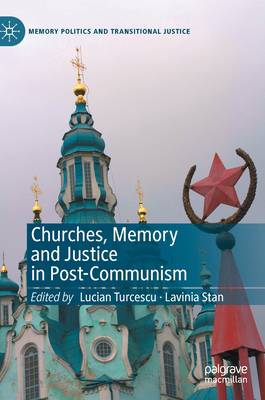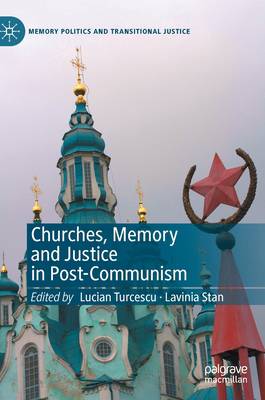
Je cadeautjes zeker op tijd in huis hebben voor de feestdagen? Kom langs in onze winkels en vind het perfecte geschenk!
- Afhalen na 1 uur in een winkel met voorraad
- Gratis thuislevering in België vanaf € 30
- Ruim aanbod met 7 miljoen producten
Je cadeautjes zeker op tijd in huis hebben voor de feestdagen? Kom langs in onze winkels en vind het perfecte geschenk!
- Afhalen na 1 uur in een winkel met voorraad
- Gratis thuislevering in België vanaf € 30
- Ruim aanbod met 7 miljoen producten
Zoeken
Churches, Memory and Justice in Post-Communism
€ 149,95
+ 299 punten
Omschrijving
This book is the first to systematically examine the connection between religion and transitional justice in post-communism. There are four main goals motivating this book: 1) to explain how civil society (groups such as religious denominations) contribute to transitional justice efforts to address and redress past dictatorial repression; 2) to ascertain the impact of state-led reckoning programs on religious communities and their members; 3) to renew the focus on the factors that determine the adoption (or rejection) of efforts to reckon with past human rights abuses in post-communism; and 4) to examine the limitations of enacting specific transitional justice methods, programs and practices in post-communist Central and Eastern Europe and the Former Soviet Union countries, whose democratization has differed in terms of its nature and pace. Various churches and their relationship with the communist states are covered in the following countries: Germany, Poland, the Czech Republic, Slovakia, Romania, Albania, Bulgaria, Estonia, Latvia, Lithuania, Russia and Belarus.
Specificaties
Betrokkenen
- Uitgeverij:
Inhoud
- Aantal bladzijden:
- 282
- Taal:
- Engels
- Reeks:
Eigenschappen
- Productcode (EAN):
- 9783030560621
- Verschijningsdatum:
- 25/08/2021
- Uitvoering:
- Hardcover
- Formaat:
- Genaaid
- Afmetingen:
- 148 mm x 210 mm
- Gewicht:
- 512 g

Alleen bij Standaard Boekhandel
+ 299 punten op je klantenkaart van Standaard Boekhandel
Beoordelingen
We publiceren alleen reviews die voldoen aan de voorwaarden voor reviews. Bekijk onze voorwaarden voor reviews.








